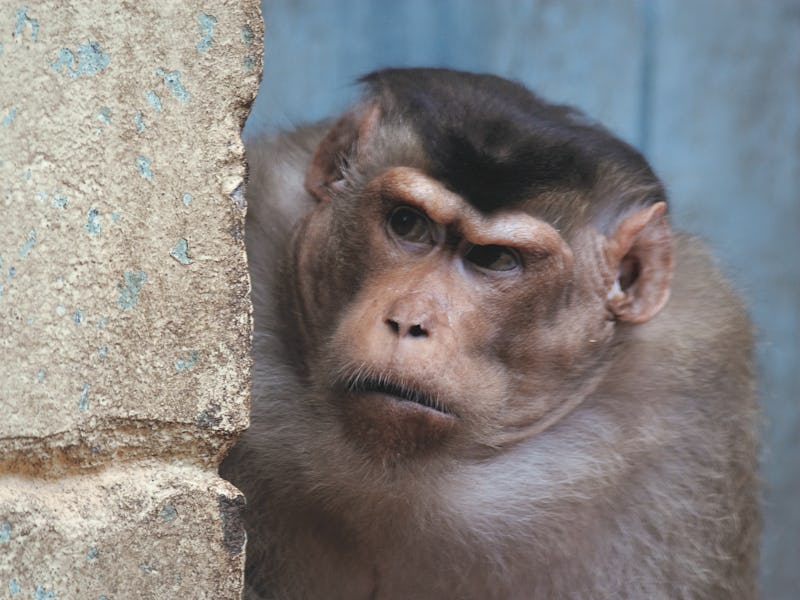Drama Can Result in Better Decisions, New Study on Monkey Business Shows
Conflict can actually promote better problem solving in some instances.

Sometimes getting along isn’t in the best interest of the group. That’s especially true if you’re a macaque, a type of Old World monkey at the center of a new study on collective problem-solving. In a paper published Wednesday in Science Advances, scientists reveal that the conflict-heavy way macaques make decisions disputes the widespread view that self-interested choices are only bad for communities — an insight they say has implications for understanding the evolution of information gathering and decision making.
Researchers from Princeton University, the University of Maryland, and the Santa Fe Institute used collective computation, a math-driven framework for studying how adaptive systems solve problems, to understand how and why the power structure in primate societies is beneficial for the group. What they found was primates took time to think about information like, how good of a fighter their rivals were, ruminated on that, and then decided whether they were going to fight or submit. That’s an important process in primate society because the outcome of individuals fighting is what distributes power across macaque social groups.
The behavior of a group is computed by a system of individual components -- in this case, macaques.
While it’s been known that the behavior of a group is typically determined by the decisions made by its individuals, what hasn’t been understood is exactly how those decisions add up to create a beneficial group-level output. The new findings demonstrate it is actually the unwillingness of the macaques to back down in conflicts that ultimately strengthens the group: Refusing to surrender leads to longer decision times, which in turn leads to a more detailed understanding of the strength of their competitor. That, in turn, means the macaques’ decision to continue fighting or bail has a higher chance of being the correct one.
“Strengthening these conflicts essentially makes the components more stubborn, which leads to increased decision times, and on average, improves the quality of information aggregation at the group level,” the scientists write. “Together, previous results about the benefits of conflict in biological systems, along with those presented here, have implications for understanding the evolution and social engineering of information aggregation mechanisms and collective computation.”
That is to say that under some conditions, conflicts of individual interests can actually be beneficial for everyone. While other scientists have previously argued that these conflicts just cause instability and an increased chance of mortality, this study shows that an unwillingness to back down can lead to the sort of necessary reflection it takes to solve a problem correctly.
It’s too soon to say whether this insight can be applied to humans, but since we’re not exactly known for our lack of impulse when it comes to making choices, it wouldn’t be terrible to consider the macaque the next time you’re about to enter a fight.